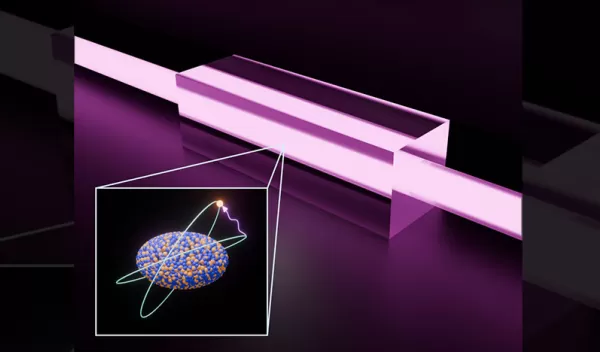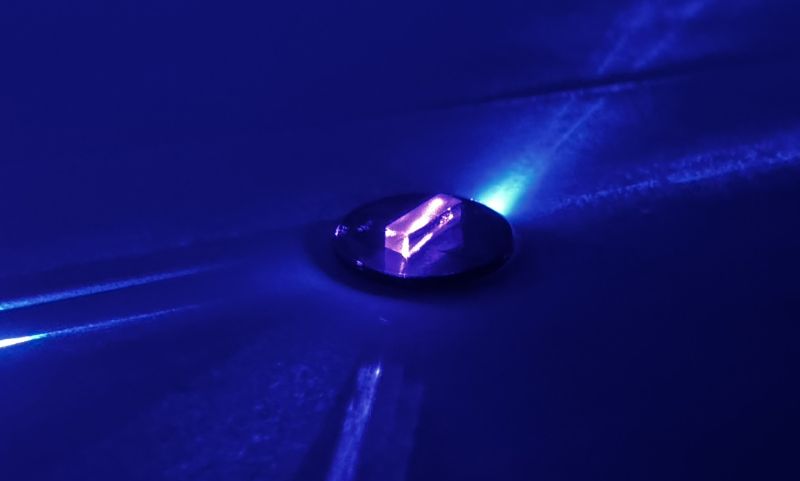
Physicists' laser experiment excites atom's nucleus, may enable new type of atomic clock
A team of researchers successfully raised the energy state of an atom's nucleus with a laser, which could lead to new precision measurement technology with orders of magnitude higher accuracy than today's best atomic clocks. The researchers embedded a thorium atom within a highly transparent crystal and bombarded it with lasers, causing the thorium's nucleus to absorb and emit photons like electrons in an atom do.
The research team is led by University of California, Los Angeles physicist Eric Hudson and funded by multiple U.S. National Science Foundation grants, including the NSF Quantum Leap Challenge Institutes program. The findings are published in the journal Physical Review Letters.
Existing atomic clocks determine the passage of time with great precision by measuring rapid energy changes in electrons surrounding atoms of elements such as cesium. However, measuring energy changes in an atom's nucleus has the potential to be even more precise. That's because the protons and neutrons inside nuclei are massive compared to electrons and thus more stable. That greater stability could also make so-called "nuclear clocks" smaller, more portable and rugged than existing atomic clocks, allowing them to be used for more applications.
"For many decades, increasingly precise measurements of fundamental constants have allowed us to better understand the universe at all scales and subsequently develop new technologies that grow our economy and strengthen our national security," said Denise Caldwell, acting assistant director of the NSF Mathematical and Physical Sciences Directorate. "This nucleus-based technique could one day allow scientists to measure some fundamental constants so precisely that we might have to stop calling them 'constant.'"

